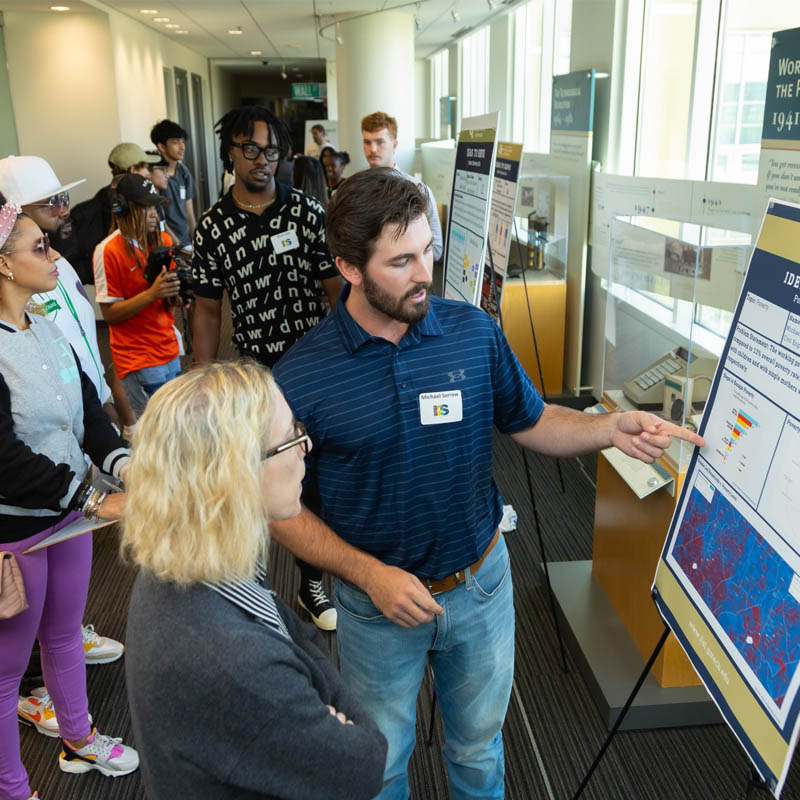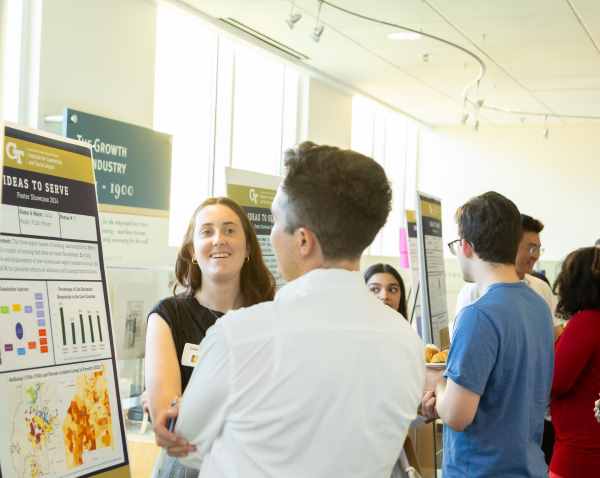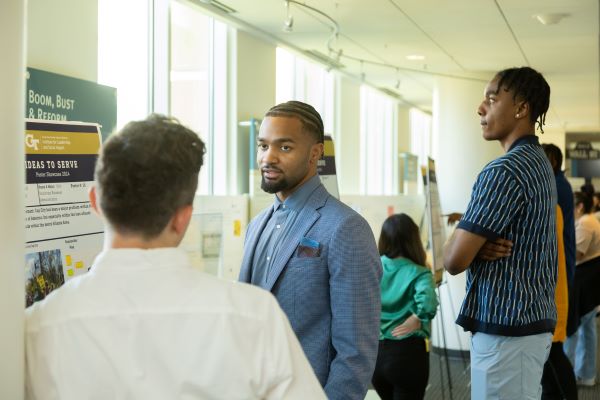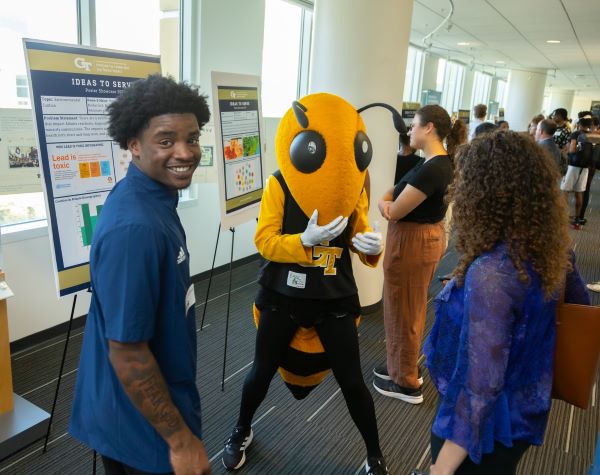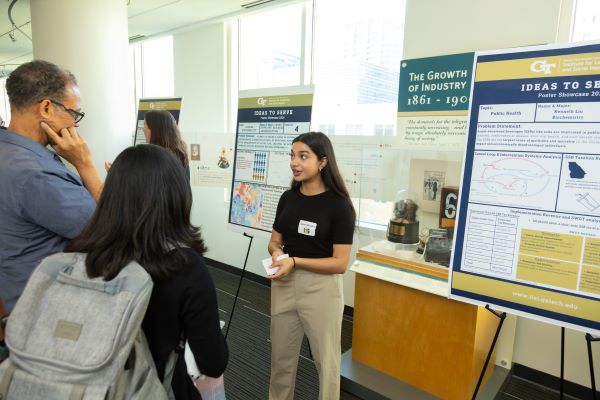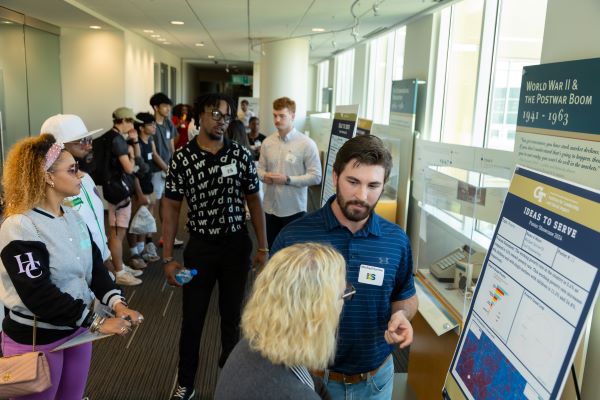Mental health challenges facing Black youth and veterans, exploring the unintended consequences of Atlanta's rapid economic development, the role of social media in the adolescent mental health crisis, and the potential impact of a soda tax in Georgia. These were some of the 19 topics Georgia Tech students chose to study in the 2024 Ideas to Serve (I2S) Poster Showcase, marking the apex of the MGT 4189 Social Impact course.
"Seeing how many students in the class had personal connections to the topics they researched, especially mental health, is an essential reminder that understanding and addressing these issues requires collective effort. They affect all of us, whether we recognize it or not," said Dori Pap, managing director of the Institute for Leadership and Social Impact (ILSI), housed in the Scheller College of Business, who teaches the Social Impact course.
The course is also one students can take to pursue a minor in Leadership Studies. A business administration student, Zach Pyron wanted to learn more about veterans and mental health. He said the experiential learning helped him understand how serious the situation is and how many veterans are affected each year.
ILSI's community partners provide topics for students to explore and help judge the showcase each year.
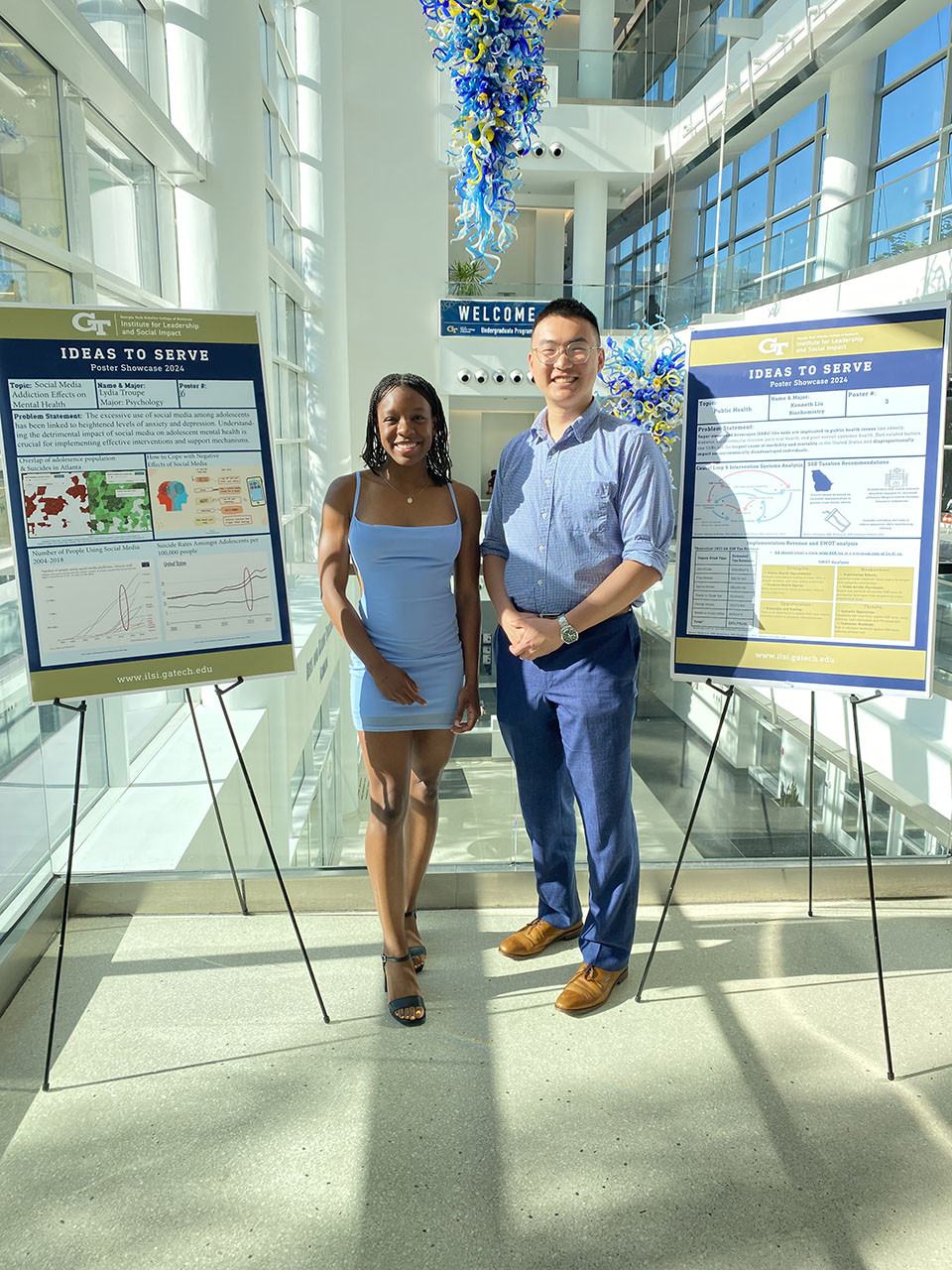 This year, the top two research projects were presented by Kenneth Liu, a biochemistry major, and Lydia Troupe, a psychology major.
This year, the top two research projects were presented by Kenneth Liu, a biochemistry major, and Lydia Troupe, a psychology major.
Liu tackled the topic of sugar-sweetened beverages (SSB), one of the leading causes of morbidity and mortality, particularly in individuals living below the poverty line. Once he'd defined his problem statement, Liu embarked on a thorough problem-discovery journey and explored the potential impacts of a SSB tax in Georgia. By highlighting this issue, Liu hopes to “raise awareness, and to promote local activism and political movement.”
Troupe focused on the effects social media has on mental health in adolescents. She discovered heightened levels of depression and anxiety for those engaged in excessive use of social media and offered ways young people can cope to avoid greater risks of suicide.
"This class put me face-to-face with many deeply inspiring speakers who taught me how to effectively work to solve complex social issues. As a non-major student, I think this type of course is invaluable for me to gain the skills, approaches, and language used by my future peers in social impact, non-profit work, and related fields. These tools have given me a more systemic view of healthcare and a more nuanced perspective on working towards healthcare reform," said Liu.
This was the first session attended by Derrick Townsend, executive director and co-founder of the Hopeful Change Project, and Dawn Townsend, co-founder and programs director. The husband-and-wife team created their organization to help mentor youth and offer resources and mental health support for violence prevention in underserved and marginalized communities. As one of nine community partners, they were excited to be one of the judges at this year's showcase.
For Jay Cranman, president and CEO of Hands On Atlanta, this was the 10th year his organization has supported the I2S program by leading one of the workshops in the Social Impact course.
"I think all the students who participated this semester learned more about what is going on in the community in which they live," he said.
Raioni Madison, founder and executive director of 3DGirls, has attended the event for two years.
"I love the concept of bringing in community partners to give the students a perspective on the type of work that's going on in the community, to elevate their thinking, and to help them aspire to be advocates for philanthropy, problem solvers, and change-makers," she said.
The 2024 partners were 3DGirls, Center for Community Progress, Freedom is a Choice, Hand, Heart, and Soul Project, Helping Empower Youth, Historic Westside Garden, Hopeful Change, Lead Center for the Youth, Southern Center for Human Rights, West Atlanta Watershed Alliance
"All this would not have been possible without our community partners and civic innovators at the frontlines addressing these issues in Atlanta, who generously share their deep knowledge and expertise with our students," said Pap.
Pap is passionate about the program, especially since it exposes students to the community that surrounds Tech. Many of these students wouldn't have known about the grassroots work being done by civic innovators in Atlanta had it not been for this course. Pap credits the Center for Civic Innovation for connecting Georgia Tech with inspiring community partners who engage students in important conversations about the root-causes of complex social and environmental issues.
“This type of experiential learning is transformative and is a powerful tool for preparing our graduates to be citizens who can indeed ‘improve the human condition’ for all," she said.
In 2024 Ideas to Serve was supported by The Cecil B.Day Program for Business Ethics, Denning Technology and Management Program, VentureLab, SpeechWorks, and Mosley Ventures.
